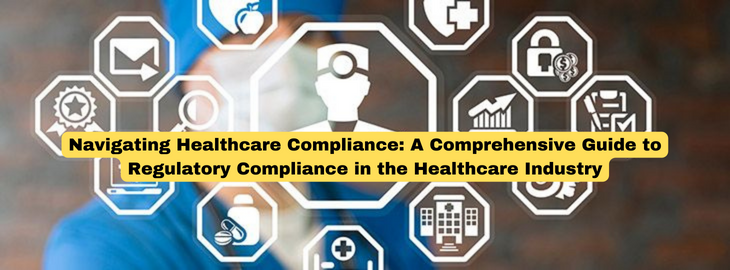The healthcare industry is one of the most heavily regulated sectors, with numerous laws, standards, and regulations in place to ensure the safety, quality, and integrity of patient care. Healthcare compliance is a critical aspect of healthcare administration and delivery, encompassing a wide range of rules and requirements that healthcare organizations and professionals must adhere to. This comprehensive guide explores the complex world of healthcare compliance, covering topics related to healthcare regulations, compliance programs, patient privacy, billing integrity, and much more. By the end of this blog, you’ll have a deep understanding of the importance of compliance in healthcare and the measures taken to maintain it.
Section 1: The Significance of Healthcare Compliance
1.1 Understanding Healthcare Compliance Define healthcare compliance and its importance in ensuring patient safety and regulatory adherence.
1.2 Patient-Centric Focus Examine how compliance measures prioritize patient rights, safety, and quality of care.
Section 2: Regulatory Framework in Healthcare
2.1 Federal Regulations Discuss key federal healthcare regulations, such as HIPAA, ACA, and Stark Law, and their impact on healthcare compliance.
2.2 State Regulations Highlight the role of state-specific regulations in healthcare compliance.
2.3 Accreditation Bodies Examine accreditation organizations like The Joint Commission and their standards for healthcare facilities.
Section 3: Compliance Programs in Healthcare
3.1 Healthcare Compliance Officers Discuss the role and responsibilities of compliance officers in healthcare organizations.
3.2 Developing a Compliance Program Explain the steps involved in creating and implementing a healthcare compliance program.
Section 4: Patient Privacy and HIPAA Compliance
4.1 The Importance of Patient Privacy Examine the significance of patient privacy in healthcare and the role of the Health Insurance Portability and Accountability Act (HIPAA).
4.2 HIPAA Compliance Measures Detail HIPAA compliance requirements, including privacy safeguards and security measures.
Section 5: Billing and Coding Integrity
5.1 Accurate Billing Discuss the importance of accurate billing practices and avoiding fraudulent claims.
5.2 Medical Coding Compliance Examine the role of medical coding and its impact on billing integrity.
Section 6: Anti-Fraud Measures
6.1 Anti-Fraud Regulations Highlight anti-fraud regulations, including the False Claims Act and Anti-Kickback Statute.
6.2 Preventing Healthcare Fraud Explain strategies and measures to prevent healthcare fraud and abuse.
Section 7: Quality and Safety Standards
7.1 Quality Improvement Initiatives Discuss quality improvement programs and their impact on patient care.
7.2 Reporting Adverse Events Examine the importance of reporting adverse events and near misses to enhance patient safety.
Section 8: Electronic Health Records (EHR) and Technology Compliance
8.1 EHR Adoption Discuss the role of EHRs in healthcare compliance and the meaningful use program.
8.2 Cybersecurity and Data Protection Examine the importance of cybersecurity measures to protect patient data.
Section 9: Training and Education for Compliance
9.1 Employee Training Highlight the significance of ongoing compliance training for healthcare staff.
9.2 Continuing Education Discuss the need for healthcare professionals to stay updated on compliance changes.
Section 10: Audits, Investigations, and Enforcement
10.1 Compliance Audits Explain the purpose and process of compliance audits in healthcare organizations.
10.2 Enforcement Actions Discuss potential consequences and penalties for non-compliance.
Section 11: Ethical Considerations
11.1 Ethical Decision-Making Examine ethical considerations in healthcare compliance, including conflicts of interest and whistleblower protection.
Section 12: The Future of Healthcare Compliance
12.1 Emerging Technologies Explore how emerging technologies are impacting healthcare compliance, including AI and blockchain.
12.2 Telemedicine and Remote Compliance Discuss compliance challenges and solutions in the era of telemedicine and remote healthcare.
Conclusion:
Healthcare compliance is the backbone of a safe and ethical healthcare system. Whether you’re a healthcare professional, compliance officer, or simply interested in the world of healthcare regulations, understanding the complexities of healthcare compliance is essential. This comprehensive guide has equipped you with knowledge about regulatory frameworks, compliance programs, patient privacy, billing integrity, and the ethical considerations that underpin healthcare compliance. Embracing healthcare compliance is a journey toward ensuring the highest standards of patient care, protecting patient privacy, and upholding the integrity of the healthcare industry. Compliance isn’t just a requirement; it’s a commitment to excellence in healthcare delivery.
